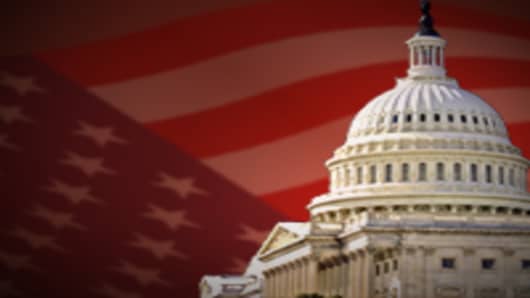The Federal Reserve should start raising interest rates now in order to head off inflation later, Rep. Paul Ryan told CNBC.
Speaking a day before Fed Chairman Ben Bernanke is scheduled to visit Capitol Hill for a congressional hearing on monetary policy, the Wisconsin Republican and head of the House Budget Committee expressed reservations about the central bank's direction.
"I'm worried they're not going to pre-empt inflation," Ryan said. "I'm worried they're going to see it too late and we're going to have a problem."
The Fed last week voted unanimously to stay on its current course—loose zero-interest rate monetary policy and buying $600 billion worth of Treasurys to circulate more money in the financial system.
But bond markets have gotten jittery since that decision, sending yields higher for seven straight sessions as traders grow leery over inflation threats on one handand prospects for faster acceleration in the recovery on the other hand.
Tighter monetary policy, including a gradual raising of rates, is essential to keeping inflation controlled before it gets out of hand, Ryan said.
"My fear is they're going to try to mop up all this excess money after the cow is out of the barn, after the inflation expectations have been formed," he said. "Credibility and perception is everything when it comes to monetary policy, and my fear is sound money is secondary toward short-term employment growth. The irony of this is sound money is a necessary precondition toward sustainable economic growth."
Ryan said he isn't interested in any attempt to "corner" Bernanke during the hearing, but rather wants to make sure the Fed's goals regarding monetary policy are the same as the new Republican-controlled Congress in regards to fiscal policy.
"I want to try to get a sense of where they're going and what they think the right policy is," he said. "It would be helpful to get us moving the needle on spending. The president's talking about $400 billion in savings over five years. That's almost nothing in the whole scheme of things."
He also said he's excited that Congress is getting serious about debts and the deficit, which he called "deferred tax increases."
"The debate that we're having right now in the House is a great debate (of) how much we should be cutting spending instead of should we increase spending," Ryan said. "So I'm excited about this debate we're having. This is the beginning of the beginning."



